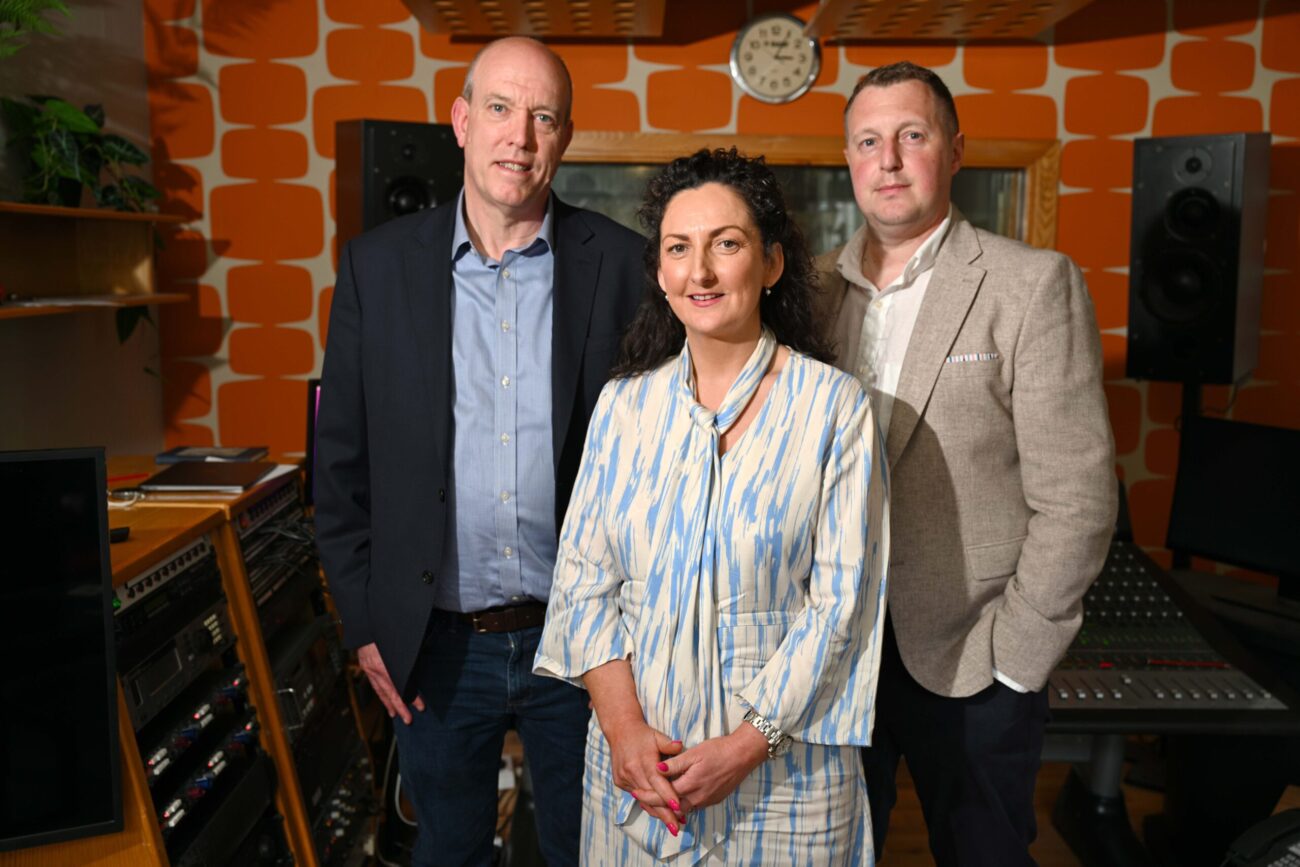AI and data are revolutionising the customer experience at breakneck speed.
Business leaders everywhere are feeling the pressure—customers expect more, competition is fierce, and the stakes have never been higher.
Adapt or fall behind—that’s the reality of this technological revolution.
So, how can companies build the agility to keep up? What technology do they actually need? And how do they bring key stakeholders—board members, employees, and customers—on the journey with them?
That’s what we explore in this podcast, produced in association with EY Ireland.
To discuss these issues, I was joined by Richard Hepworth, lead partner for Innovation Design and Customer Transformation with EY in Ireland; Bronagh Riordan, Partner, AI & Data, EY Ireland; and Cillian Leonowicz, Partner, Technology Consulting, EY Ireland.
As Hepworth told me, there was a reason three partners from different areas of the firm were sitting around the table.
“What we’re finding is that to deliver these types of programmes, it’s a multi-discipline type of event. That’s where the three of us work very closely together to make sure we pinpoint the right use cases, to make sure we get the technology right, and to ensure we get the data analytics right,” he says in the podcast.
“This is actually really challenging organisations’ business models, and also challenging changing the way that we go to market as well.”
In this podcast, Hepworth, who has spent more than two decades helping companies transform their customer experience (CX) capabilities, explained why businesses are increasingly investing in their customer transformation projects and outlined how new technologies can help companies adapt to changing consumer demands and expectations.
Hepworth also emphasised the importance of “clarity and vision” before a company embarks on a customer transformation project, arguing it delivers a better outcome for customers while also delivering a competitive advantage.
“Customer expectations are radically changing,” he said. “They’re getting used to using technology, whether it’s on their phone or in their home, in new and innovative ways.
“That is driving businesses to change in order to maintain their relevancy in the marketplace and to be competitive and stand out from all the other brands that they’re competing against. It was interesting in a recent survey where about 28 per cent of customers were now prepared to give their data across to get a more hyper-personalised customer experience. So this trend is only going to increase.”
Capitalising on this trend will require the proper utilisation of technology, and in this podcast, Leonowicz explained the technology requirement needed to be aligned with the needs of the business.
The way Leonowicz saw it, companies had to make sure they did not forget the basics, such as adequate testing and that they got the fundamentals correct.
“What is it that you need to deliver, from a technology perspective, to enable the business? Enabling the business comes back to what are the customer outcomes you want to achieve,” he said.
Leonowicz said there has been a huge investment at present in technologies on the cognitive spectrum – “everything from artificial intelligence right back to the basics of robotic process automation and machine learning”.
Companies, he said, needed to get the balance right in how they were deployed.
“A lot of the organisations we deal with are not managing the KPIs and the return on investment. So that’s actually hindering their investment in the future,” he said.
Data first
Riordan, a specialist in AI and data, discussed the crucial role of data in customer transformation projects, highlighting the importance of first-party data, data quality and governance. She also outlined a number of real-world use cases of AI in customer engagements, such as personalisation, chatbots and predictive modelling.
“Many have identified data as a super fuel for analytics and AI, and it’s really important that you have really good quality data that’s well governed within your system,” Riordan said.
According to Riordan, there are a number of key elements when it comes to the role of data that need to be identified at the beginning of a project.
“First of all, first-party data, which is your own customer data, is really important if you’re able to access that because you have accurate and relevant insights on your consumers, behaviour, their patterns, their trends, their insights, their spending profile as well,” she said.
“If you’re able to understand first-party data on your own customers, that can really enhance your productivity and your insights about your customers, you have that better understanding of your customers, which are the real case studies of how it works.”
In the podcast, the three EY partners also talked about the importance of people and culture, arguing that a project will fail if the team is not behind it. In addition, they explained how AI and data can be used to ensure that companies are measuring how a project is performing.
They also offer practical advice for companies looking to embark on a transformation journey, including the pitfalls to avoid and they explain what major projects are not just for large multinationals, outlining how they can help start-ups and SMEs.
“What we’re finding is that these technologies are available to all, and actually all organisations need to adopt them in different guises as quickly as possible,” according to Hepworth.
This podcast has been produced in association with EY.


